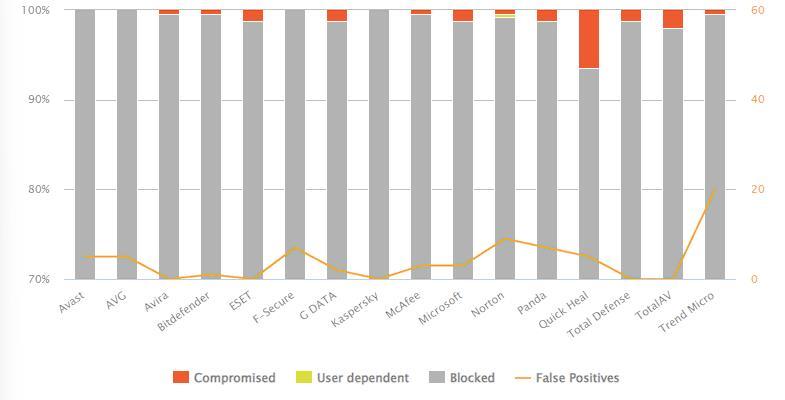It is increasingly difficult to connect to the Internet safely. The Internet is full of threats and hackers who look for the slightest opportunity to infect you with a virus and carry out a computer attack to get hold of your personal and banking data. Therefore, an antivirus is an essential tool when connecting to the network. But not all security programs protect us the same.
Although it is true that thanks to heuristic systems and the cloud, all antiviruses share virus signatures to protect users from minute zero, the antivirus engines are not the same. Some security companies are committed to reliability, making them capable of detecting the greatest number of threats and avoiding false positives, while other companies are overly strict to increase detections at the cost of having false positives.
AV-Comparatives is one of the independent companies that is in charge of testing these security programs to help us know which ones protect us best and worst. Below we are going to analyze the results of the latest tests from 2024 to see if our security program is really protecting us or, if not, it is of no use.
Kaspersky, the best antivirus today
AV-Comparatives has tested 16 antiviruses to see if they fulfill their purpose or not. To do this, they test them all, in identical environments, and load them with a battery of viruses, Trojans and other threats to see how they behave. They analyze the number of viruses they have detected, the false positives they have had, and also the threats they leave in the user’s hands.

Of the 16 antiviruses, only one has achieved a perfect score: Kaspersky. This is the only security program capable of detecting 100% of threats, with a total of 0 false positives and without depending on the user at all.
There have been more antiviruses that have been able to detect 100% of the threats, although, yes, obtaining false positives. We talk, for example, about Avast/AVG and F-Secure. The other antiviruses have left users’ computers exposed, to a greater or lesser extent.

Apart from these antiviruses, there are others that, although they have not provided 100% protection, their effectiveness range is within acceptable ranges. We are talking, for example, about Avira, Bitdefender or McAfee, which have only missed less than 0.5% of the threats. Norton and Trend Micro also remain within that range, but the number of false positives is too high. Norton has also left some decisions in the hands of the user, something that, at this point, should not happen.
The worst security programs of 2024
As for the antivirus that got the worst score in these tests, the worst of all is Quick Heal, a very little-known antivirus that, if it continues like this, doesn’t have much chance of growing either. Those in charge, in India, should pay much more attention to both the efficiency of their antivirus and their advertising to make it known.
TotalAV, ESET, Panda, Total Defense and G-Data have missed around 2% of the total threats, and some of them with too high a number of false positives, so something is not working in their engines like ought.
And what about the popular Microsoft Defender? This time we must give it a slap on the wrist, since it has missed 1.2% of computer threats, also leaving several false positives. Maybe it’s time to change your security program.













